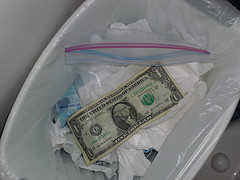 Oahu’s recent Wanderlust Festival provided yoginis the opportunity to mix and mingle with some of the yoga world’s biggest names: Shiva Rae, Baron Baptiste, Shakti Sunfire, Eion Finn and Michael Franti were fixtures in the festivities. Given the yoga crowd’s penchant for mindfulness, organic foods, and all things green, the choice of location for such an event was critical for the event’s organizers. Turtle Bay Resort, where the Oahu Wanderlust festival was held, has been under fire from environmentalists and community activists over a proposed development of the pristine and legendary “country”, the North Shore of Oahu. Quick aside: The original term “Town & Country” referred to Honolulu (“town” as it’s called locally) and the wilder, less concrete parts of Oahu, especially the North Shore (“country”).
Oahu’s recent Wanderlust Festival provided yoginis the opportunity to mix and mingle with some of the yoga world’s biggest names: Shiva Rae, Baron Baptiste, Shakti Sunfire, Eion Finn and Michael Franti were fixtures in the festivities. Given the yoga crowd’s penchant for mindfulness, organic foods, and all things green, the choice of location for such an event was critical for the event’s organizers. Turtle Bay Resort, where the Oahu Wanderlust festival was held, has been under fire from environmentalists and community activists over a proposed development of the pristine and legendary “country”, the North Shore of Oahu. Quick aside: The original term “Town & Country” referred to Honolulu (“town” as it’s called locally) and the wilder, less concrete parts of Oahu, especially the North Shore (“country”).
Should sustainability be a consideration in choosing a location for a festival like Wanderlust? The Turtle Bay Resort is, after all, a member of the Hawaii Green Business Program, and was awarded a 4 Green Eco-Leaf Rating from iStayGreen.org. Among Turtle Bay’s green accomplishments:
- The resort shifted its pools to saltwater, eliminating the need to manufacture, store, and ship chemically based chlorine.
- It sends employees out to participate in beach cleanups with Sustainable Coastlines, a local environmental group.
- They have partnered with local farms to bring in some local and organic produce, though how much is very unclear from their website.
- They’ve retrofitted 70% of their lighting to date, dropping their electricity use 12%.
- They’ve implemented recycling across the resort (though..more on this in a sec).
- They’ve upgraded to lower flow showers, toilets and urinals.
- They’ve shifted to only washing bed linens every third day of a guest’s stay.
- They say they’ve shifted their restaurants’ use of cups toward reusable, compostable, or post-consumer recycled material (though…more on this…yeah, in a sec).
All of which is good. If you take a detailed look, though, most items, like many companies’ initial efforts at sustainability, are primarily designed to cut costs. It’s great, but is that real sustainability, or more of an accounting decision?
Digging a little deeper, I looked into their recycling program. From what I found on site, there was little availability of recycling. There are bins in the parking lot for bottles and cans. Here in Hawaii, those are worth money, 5 cents per can/bottle. Beyond that, I couldn’t find a recycling or compost bin anywhere in the hotel, and nothing for less valuable recyclables like newspaper, magazines, #’s 3-7 plastics, or glass.
But here’s the really interesting part. Knowing that the attendees of the festival would be aghast at the lack of appropriate recycling and composting facilities, Wanderlust’s organizers pushed Turtle Bay to do a three bin system for trash, recyclables and compostables. Turtle Bay complied, but put little or no resources into it. They instead outsourced the job to Sustainable Coastlines, who happily volunteered to take on the job…for no pay. Turtle Bay provided no support staff to help festival attendees to sort their refuse. As a result, there was compost in the recycle bin, trash in the compost bin, and recyclables everywhere. When I asked Sustainable Coastlines’ volunteers what happened then, they replied that they just rolled their sleeves up and dug into the piles to do the sorting.

Tristan Cummings of Sustainable Coastlines was very chipper and upbeat on the situation, saying that Turtle Bay had provided them access to golf carts to move rubbish around, and had granted them camping access for the weekend, which he said was the best perk. However, camping access wasn’t limited to the SC volunteers (it was available to all festival attendees), so if that’s the best perk offered for 3 days of sorting trash, that seems a little weaksauce, especially when you consider the economics of the situation: Wanderlust sold Turtle Bay completely out. At $350-$475 per night for many of their hundreds of rooms, the amount of money that Wanderlust brought to Turtle Bay is easily into the tens of thousands. Would hiring some folks to handle the event’s waste really have been difficult? Sustainable Coastlines did a great job handling the waste, but I found this to be the biggest failing of the weekend.
According to Cummings: “The yogis were open to hearing what our members had to say at our information booth. As with any large group of people you’ll find some who are well informed on the topic and others who have yet to be turned on to the issue of marine debris. The people I spoke with were receptive and interested in the topic. I think yogis in general have a respect for the environment that comes along with living an examined lifestyle.”
The other major blemish on the resort’s green image is the restaurants on site. Whether they’re sourcing local and organic or not (hard to tell, as I said earlier), they serve a high end, high carbon footprint menu, and dish it up with lots of plastic. Here’s a photo I took of a typical table setting at one of Turtle Bay’s establishments. Each table in the place was similarly covered in single-use plastics. Watching people drink, they either immediately removed the straws, or pushed them aside as they were drinking. There’s an easy, quick win–get rid of the straws and save money. It’s a ton of plastic junk, costs money, produces waste you have to clean up and move later, requires reordering, creates extra work for bartenders…and few, if any folks, use them.

In addition to the single-use disposables with which most of the cuisine is served, the food leaves something to be desired in terms of sustainability. It’s packed with GMO ingredients, imported goods, and foods with heavy carbon footprints. My girlfriend and I, both vegetarians for 20+ years, arrived a few days before the event to start looking into stories we wanted to write about the event. The menus at the restaurants on site were enough to chase us to neighboring Haleiwa, a town 15 minutes away, in order to eat a decent meal. Among the offerings at Turtle Bay:
- Lei Lei’s Bar & Grill features prime rib, escargot, calamari, ahi, shrimp, salmon, ribs, chicken…you get the idea. Not much of this is grown here in Hawaii, and there’s not a single item on Lei Lei’s menu that is organic. The only vegetarian entree? Bleached white pasta with veggies and cream sauce, for $21.95.
- Surfer the Bar also has nothing labeled organic and just one vegetarian entree, a $16 garden burger.
- The Hang Ten bar menu similarly has a $14 veggie burger, nothing organic, and plenty of food coma inducing, gut-busting, imported dishes, like the “Kanak Attack Nachos” (Kanak Attack is Hawaiian slang for food coma).
- The most upscale of the restaurants, Ola, has some all natural beef from North Shore farms and one vegetarian entree (which does look delicious), but not much else, and for prices that I’d think would normally suggest you’d be getting an all organic, all local, fresh, healthy, GMO-free and delicious meal.
But the really interesting part is that all of these places changed up their menus for the weekend of Wanderlust, and started serving good, healthy fare, and really calling attention to anything local or natural that they were serving. Is that really that difficult to do on a regular basis as opposed to a one-off? I hope the resort saw the financial impact of the green community in full force for one terrific weekend and decides to move much farther on its sustainability journey.








Very interesting article Scott – Thank you. I have been researching the Resort’s plans to develop. You are on the mark about using volunteers to implement “green” activities. Sustainable Coastlines did an EXCELLENT job of organizing the Beach Clean Up on the property (it needed it). The Resort only cleans around the Hotel not the rest of the 5 miles of coastline. Also, the Resort intends to have volunteers implement their proposed mitigation for developing this coastal wetland by providing “educational programs”. The Draft Supplemental Environmental Impact Statement falls way short of documenting the flora and fauna on the property and goes downhill from there. There is no predator control program in place (mongoose, rats, mice, cats) or even proposed. There are at least TWENTY species of plants and animals here that are protected by the Endangered species act and or the Migratory Birds Treaty Act. All this and you think you had it bad, I’m vegan and all I ever get to have is garden salad and fries (OK and a Mai Tai). if I go to Lei Lei’s for breakfast (to watch other people eat) I bring my own coffee.
Agreed Scott! Great coverage and TB are just scratching the surface for the “DEEP Green” that Hawai’i and the world need ASAP!
Sustainable Coastlines did an AWESOME job at this event! They should at least have a (TAX-DEDUCTIBLE!) donation kicked back to them by TB! Please let us all know if you hear TB have stepped up to do the right and pono thing 🙂
http://sustainablecoastlineshawaii.org/ keep rocking it! MAHALO!